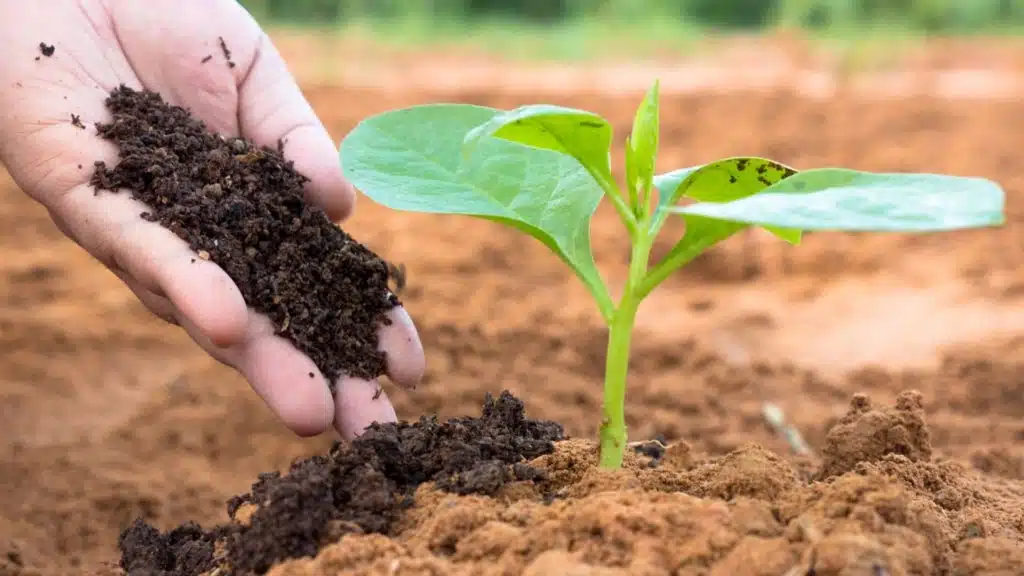Plant Nutrition
Understanding Plant Nutrition
Plant nutrition is crucial for the growth and development of plants. It involves the absorption of nutrients that plants need to thrive. These nutrients are essential for processes like photosynthesis, energy transfer, and overall health. Without adequate nutrition, plants may struggle to grow or produce healthy fruits and flowers.
Plants obtain nutrients from the soil, water, and air. Essential nutrients are categorized into macro and micronutrients. Macronutrients include nitrogen, phosphorus, and potassium, which are needed in larger amounts, while micronutrients like zinc and iron are required in smaller quantities. Understanding these nutrients helps us nurture our plants better!
Macronutrients
Macronutrients are the building blocks of plant nutrition. Nitrogen is vital for leaf growth, while phosphorus supports root development and energy transfer. Potassium helps regulate various plant processes, including water uptake and disease resistance.
- Nitrogen: Promotes green foliage.
- Phosphorus: Encourages root growth and flowering.
- Potassium: Enhances overall plant health.
Each of these macronutrients plays a significant role in ensuring your plants are healthy and productive. If you notice yellowing leaves or poor growth, it might be a sign that one of these nutrients is lacking!
Micronutrients
Micronutrients, although needed in smaller amounts, are just as important for plant health. They include elements like iron, manganese, and copper. These nutrients assist with critical functions such as photosynthesis and enzyme activity.
- Iron: Essential for chlorophyll formation.
- Manganese: Helps with photosynthesis and respiration.
- Copper: Important for plant metabolism.
A deficiency in any micronutrient can lead to problems like stunted growth or discoloration. It's essential to ensure that your plants receive a balanced supply of both macro and micronutrients! Discover more by visiting https://deeprootsjournal.com/root-care/essential-tree-care-and-landscaping.
Sources of Plant Nutrition
Plants absorb nutrients primarily from the soil. However, various sources can enhance their nutrient intake. Organic matter such as compost and animal manure enriches the soil with essential elements, making it an excellent source of nutrition for your plants.
Additionally, fertilizers can provide a quick boost. There are many types of fertilizers available, including organic and synthetic. Organic fertilizers release nutrients slowly, while synthetic options can provide immediate nutrition. It's vital to choose the right type based on your plants' needs!
Soil Testing
To understand your soil's nutrient content, consider conducting a soil test. A soil test provides valuable information about the pH level and nutrient composition. This data can guide you in selecting the right fertilizers and amendments to enhance your plant's growth.
- Check soil pH.
- Analyze nutrient levels.
- Identify deficiencies.
By knowing what your soil needs, you can make informed decisions that promote healthy growth and vibrant plants!
Watering and Nutrition
The way you water your plants also impacts their nutrition. Water helps dissolve nutrients in the soil, making them available for plant uptake. However, overwatering can leach nutrients away, while underwatering can hinder nutrient absorption. It's a delicate balance!
To optimize nutrient uptake, water your plants consistently but ensure the soil has good drainage. This will help maintain the right moisture levels and keep your plants happy!
Common Nutrient Deficiencies
Identifying nutrient deficiencies in plants is crucial for maintaining their health. Some common signs include yellowing leaves, stunted growth, and poor flowering. Each deficiency has its specific symptoms, so recognizing these can help you take action early!
- Nitrogen Deficiency: Yellowing leaves, especially older leaves.
- Phosphorus Deficiency: Dark green or purplish leaves and stunted growth.
- Potassium Deficiency: Brown leaf edges and poor fruit quality.
If you observe any of these symptoms, it's essential to assess your plant's nutrition and make necessary adjustments. Remember, healthy plants make for a beautiful garden!
Conclusion
In conclusion, understanding plant nutrition is vital for any gardener or plant enthusiast. By ensuring your plants receive the right balance of macronutrients and micronutrients, you can promote healthy growth and vibrant blooms. Don't forget the importance of soil quality, watering practices, and recognizing deficiency signs!
Take some time to assess your plants' needs, and you'll be rewarded with a flourishing garden. Happy gardening!
Frequently Asked Questions (FAQs) about Plant Nutrition
- What are the main macronutrients needed for plant growth?
Nitrogen, phosphorus, and potassium are the primary macronutrients essential for plant growth. - How do micronutrients affect plants?
Micronutrients like iron, manganese, and copper are crucial for functions such as photosynthesis and enzyme activity, despite being needed in smaller amounts. - What is the role of soil in plant nutrition?
Soil is the primary source of nutrients for plants, and its quality can significantly impact nutrient availability. - How can I determine if my plants have nutrient deficiencies?
Common signs include yellowing leaves, stunted growth, and poor flowering, which indicate specific nutrient deficiencies. - What are the benefits of conducting a soil test?
A soil test provides information about pH levels and nutrient composition, helping to select appropriate fertilizers and amendments. - How does watering impact plant nutrition?
Water helps dissolve nutrients in the soil, making them available for absorption, but both overwatering and underwatering can disrupt nutrient uptake. - What is the difference between organic and synthetic fertilizers?
Organic fertilizers release nutrients slowly, while synthetic fertilizers provide immediate nutrition for plants.
Follow Us
Weebly
|
Tumblr
|
Twitter
|
Gravatar
|
Disqus
|
Google Sites
|
Youtube
|
About.me

Comments
Post a Comment